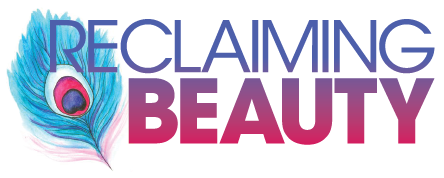My Call to Work with People with Eating Disorders
I was honored to speak this week at the 4th annual awareness building and fundraising breakfast for the Carolina Resource Center for Eating Disorders, a non-profit based in Asheville, NC supporting individuals, families, and professionals concerned with disordered eating and recovery from eating disorders. I love this annual event bringing together so many people in our community touched by eating disorders. Here is what I had to say:
Good morning. I’m going to tell you the story of how I almost did not become an eating disorder professional. When Fate came knocking on my door 13 years ago to invite me to work with clients with eating disorders, my first impulse was to say "No, thank you!" Jane Ferguson, a woman I had previously worked for, was opening an eating disorder treatment center here in North Carolina. She told me she saw something in me she felt would be a compatible addition to the eating disorder recovery field. I was not so sure…
My hesitations could be categorized in three ways: Misconceptions, Too Close to Home, and Not Knowing What I Had to Offer.
I felt scared to work with what appeared to be a complex and relentless illness. I had a lot of misunderstanding about the causes and reasons for eating disorders.
I felt nervous about the way the presenting issues of an eating disorder overlapped a little too close to my own. I struggled with the impact of sizeism, weightism and diet culture on my relationship to myself and food. I struggled with equating my worth with how my body fit into an ideal. I struggled with avoiding my underlying core vulnerabilities and instead focusing on my appearance. I struggled with using food to regulate my emotions and nervous system.
Furthermore, I didn’t see in myself what Jane saw in me as far as my capacity to work with this population. What I had to offer the world was unclear to me. I wanted to run the other direction.
But fortunately, there was a small voice inside, let's call her my Intuition, that encouraged me to say YES despite my fear. I resourced my nervous system, acted opposite my fear – a significant recovery skill - and have been passionately involved in the field of eating disorder recovery ever since.
My involvement with the Carolina Resource Center for Eating Disorders has had depth and breadth. This involvement has included volunteering on the initial task force in 2004, leading the free support group at least once a month for several years, serving a term as a member of the Board of Directors, actively participating in a variety of community outreach and education presentations, and facilitating the Peer Consultation group for the past 3 years. It has been a pleasure to see the Carolina Resource Center for Eating Disorders grow and evolve. There has been much growth in the services we provide, and still there is more to be done.
I value Community Outreach and Education and Professional Development and see the goals of this part of the Carolina Resource Center for Eating Disorders as parallel to my initial hesitations to enter this field.
For one thing, outreach and education helps to challenge misconceptions about eating disorders that cause stigma and contribute to shame in those who struggle with these mental health illnesses. Professionals and community members need a clear understanding about the causes of eating disorders and effective treatment approaches.
Secondly, outreach and education help community members explore how the contributing factors of eating disorders are entangled with their own struggles, as the cultural impact of diet culture, sizeism, and weightism impact us all, and many people are regulating themselves with food and body obsession. Providing information about the social justice aspects of eating disorders allows for professionals to be helpful without being inadvertently harmful.
Outreach and education also reinforce the healing power of reflecting what is inherently worthy, valuable and beautiful in a person with an eating disorder. Understanding the function of their eating disorder allows a person to see themselves more clearly. Once this function is understood, shame can heal and the very qualities we judge in ourselves can be accessed as the power, strengths and gifts we have to offer the world.
I have had the honor of supporting many, many people with eating disorders over the past 13 years. I am forever grateful to Jane Ferguson for inviting me into this world. What I know for sure is that recovery is not possible in isolation – We need a tribe of people to heal the cultural wound of being judged by the external rather than seen and valued for the beauty of who we are. We need a tribe of people to wrap around us as we navigate the ups and downs that are inherent in the recovery process. We need a tribe of people to share our stories, and heal shame with connection, compassion and maybe even a little laughter. We need a tribe of people to mirror our authentic selves, and like Jane did for me, see something in us we may not yet be able to see.
I am also grateful to be a part of this tribe of collaborative advocates, providers, friends, and recovery journeyers. We all benefit from a community that has such a robust resource as the Carolina Resource Center for Eating Disorders to provide the education, resources and support needed for healing. We are always looking for more people to join this tribe. If you are not already connected, consider this morning YOUR invitation. I see your beauty.


